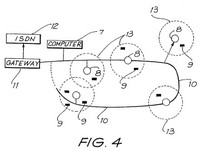
CSIRO operates as a technology licensing arm of the Australian Government. CSIRO does not practice its inventions, but has asserted its wireless LAN patent against a number of accused infringers, including Intel, Microsoft, Marvell, and Buffalo. The patent is broad enough to cover all 802.11a/g wireless technology and has a 1992 priority date.
In the case against Buffalo, CSIRO won a slam-dunk summary judgment of validity and infringement. The court then considered whether to award a permanent injunction in favor of the non-practicing entity (NPE).
To continue reading, become a Patently-O member. Already a member? Simply log in to access the full post.